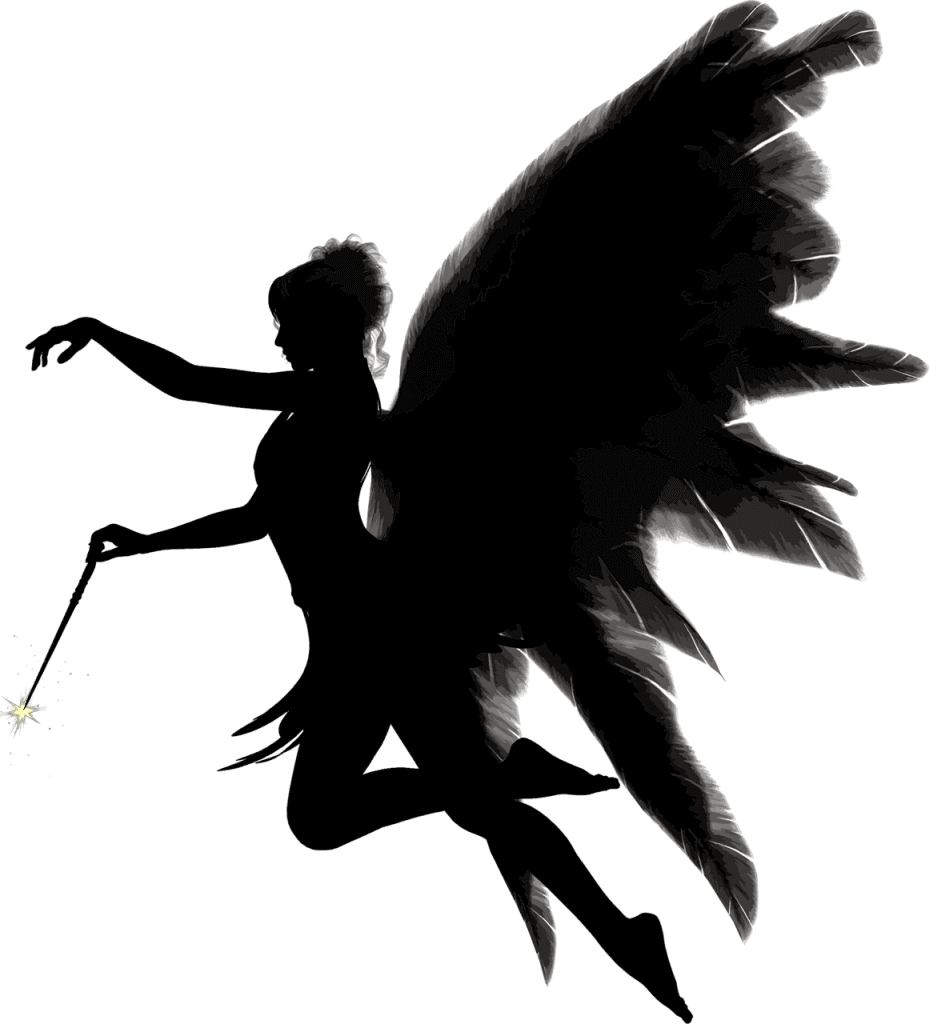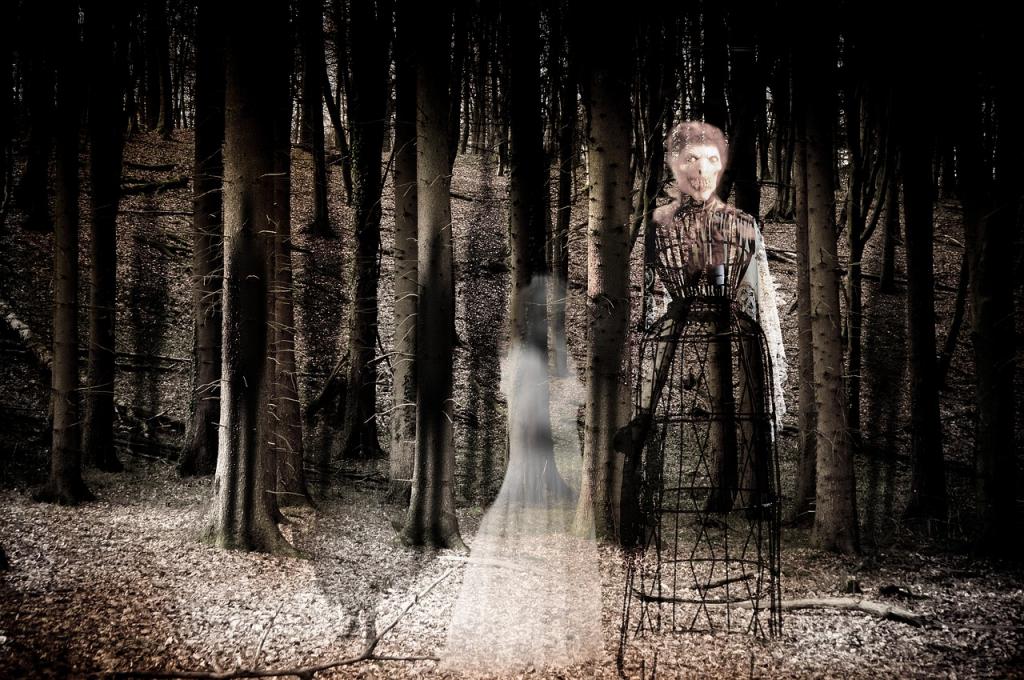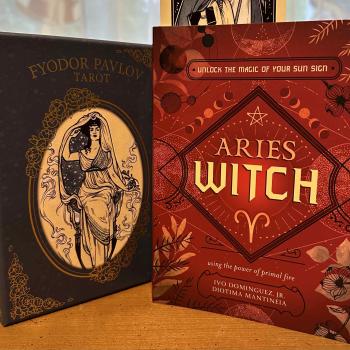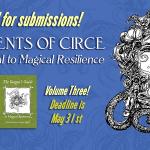Most witches follow the rede. “An it harms none, do as thou wilt.” But what happens when we get mad or do something stupid?

I’m probably one of the most love-and-light practitioners out there, but despite my best intentions, I had a few experiences with the baneful side. Here are six things I learned from experiences with baneful magic and trickster gods.
1. Don’t joke about harming another person unless you’re serious
The first time I worked baneful magic was a complete accident. In high school, a guy I was interested in (let’s call him Tony) had a basketball rival. When Tony asked me to break his rival’s leg with my ‘magic,’ I laughed. He thought I was witchy, even though I wasn’t so sure at the time. I was more into meditation and affirmations.
But I smiled and blushed. “Okay, sure.”
Our conversation changed to something more normal, and I didn’t think about it again.

The next day, Tony’s rival broke his leg while playing basketball with Tony. I withdrew into myself, struck numb with fear. Tony tried to reassure me it wasn’t my fault, but I was scared. He had to go to the hospital. Even thought I would never put that energy out there, I had jokingly agreed to do it. It was too much of a coincidence for me to ignore.
The experience made me realize the magnitude of the power I carried. That power had consequences and responsibilities. I knew I never wanted to harm others, so I learned to manage my intentions better.
2. Be specific about whom you’re inviting into your circle
I used to live with a bunch of crazy artists in a warehouse. One day, I walked in on my friends chanting and asked that they were doing.
“We’re welcoming the spirits into the warehouse,” one of them said.
I frowned. Spirits? “Which ones?”
“All of them!”
I shrugged and walked away. We were arguing over stupid things, like the fact that they refused to buy cat food and toilet paper. Looking back, though, I see that I should have said something. . .
What happened in the next couple of weeks was beyond my comprehension. The energy in the warehouse changed. An other-worldly wind was constantly blowing from nowhere, and the shadows seemed sinister, as if they had claws that reached out to grab my shoulders. One of my friends who had raised the spirits literally went crazy. He sobbed almost constantly and couldn’t leave the warehouse to work.
They had raised chaos spirits, not benevolent spirits.

I learned that you must be specific about which ‘spirits’ you welcome into your circle. They’re not all good.
3. Don’t make demands of trickster gods
This didn’t happen to me, but it happened to a close friend, Mike. He was on the west coast, high up on a rocky cliff, watching the ocean waves roll in. We’d been talking about Irish and Celtic deities lately, and I suppose he got a little ballsy.
Mike faced the ocean and raised his hands up high. “Come on, Manannán mac Lir! Show me what you’ve got!”
A wave rose up from the ocean and knocked him down. Mike hit his head on the rock. Then, the water started to drag him into the ocean.

Mike clung to the rock as the wave eventually washed out back to sea. He was soaking wet and bleeding from a three-inch cut on his head. He had to get stitches.
Mike realized he’d been foolish, tempting a trickster god of the sea like that. From this, I learned never to make demands of the gods, or make fun of them. You never know how they’re going to take it, and it’s best not to anger them.
4. But don’t ignore trickster gods, either
When I lived in a Vodou temple, I found myself attracted to Papa Legba, the between-the-worlds, crossroads, trickster god. It makes sense, considering my dark goddess / crone / Hecate-loving background. However, I was trying to be respectful of Papa Legba and the temple space. I had a dream about him, but I didn’t feel comfortable communicating with him much, because I felt it was too early. I hadn’t served much time there yet.
One day, while journaling in the temple, my favorite pen ran dry. I licked the tip, trying to get the ink to flow more. It was that precise moment that the pen broke, sending a mass of black ink into my mouth. I spit and stared at the pool of ink on my journal page, stunned.
My friend, an initiate there, laughed at my black tongue and gray teeth. “Papa Legba likes you.”
Papa Legba had been reaching out to me for weeks, and I hadn’t been paying attention. I saw this as his very direct way of getting my attention, especially with my Voudou friend nearby, who could interpret it. Trickster gods don’t like to be ignored.
5. Always create boundaries when working with ghosts
Once, after I moved to a new house, I went to my local graveyard and introduced myself. I told the spirits of the dead that I can see and hear ghosts sometimes, and that I would visit again.
Two weeks later, I lie in bed, unable to sleep. I felt like I was being watched. When I rolled over, I saw the spirit of an old man. His etherial outline hunched over next to my bed. His mouth moved as if he were trying to talk, but I didn’t hear anything.

I took a deep breath and closed my eyes. With the force of my will, I pushed him out of my house. I banished him further, out of my yard, and all the way back to the graveyard.
“I did not invite you into my house,” I whispered through gritted teeth.
Since then, the old man has stayed away from my home. I think he understands that I have boundaries. I may visit his graveyard again when it feels right, but right now, I feel the need to prolong my absence due to his transgression.
I learned it’s good to have boundaries when working with ghosts. Not all of them follow common courtesies.
6. Wise witches don’t hex other people without being aware of all possible consequences
A friend of mine who was new to witchy things decided to hex her ex without asking me about it. She was mad at him because after they’d broken up, he started dating someone else almost immediately, and he was happy. She cast curse after curse at him, but she couldn’t get over him. She ended up inviting him to her bed repeatedly despite wanting to stay away from him.
After she told me she hexed him, I took her aside. I suggested she cut their bond with love, or practice neutrality as opposed to harmful intentions or revenge.
After a while, it worked. Turning her energy inward and focusing on herself served her better than revenge ever could. She eventually lost interest in him and moved on.
I have suspicions that some revenge magic ties the spell caster to the castee. It’s really ironic, too, because it’s the last thing they want.

It’s one thing to bind someone from doing harm — I’d call that self-defense or defense against the dark arts. But it’s another to hex or harm someone intentionally. Hexing is definitely a personal choice for each witch to make. It is possible there are times when hexing may be the right thing to do, especially in moments of great disadvantage or unfairness. However, we should be careful when our thoughts go in that direction. It’s a slippery slope, and you may regret it if it isn’t really warranted.
“One step in the wrong direction isn’t just a step. It’s more like fifty-thousand steps.” Claire to Belle, in Belle Dame Sans Merci
With this much power and the ability for some to use it inappropriately, it’s no wonder that the rede is important, especially for beginners. As for me, I’m moving forward with clear intentions for my work. It makes a world of difference, and that’s the world I like to live in.
















